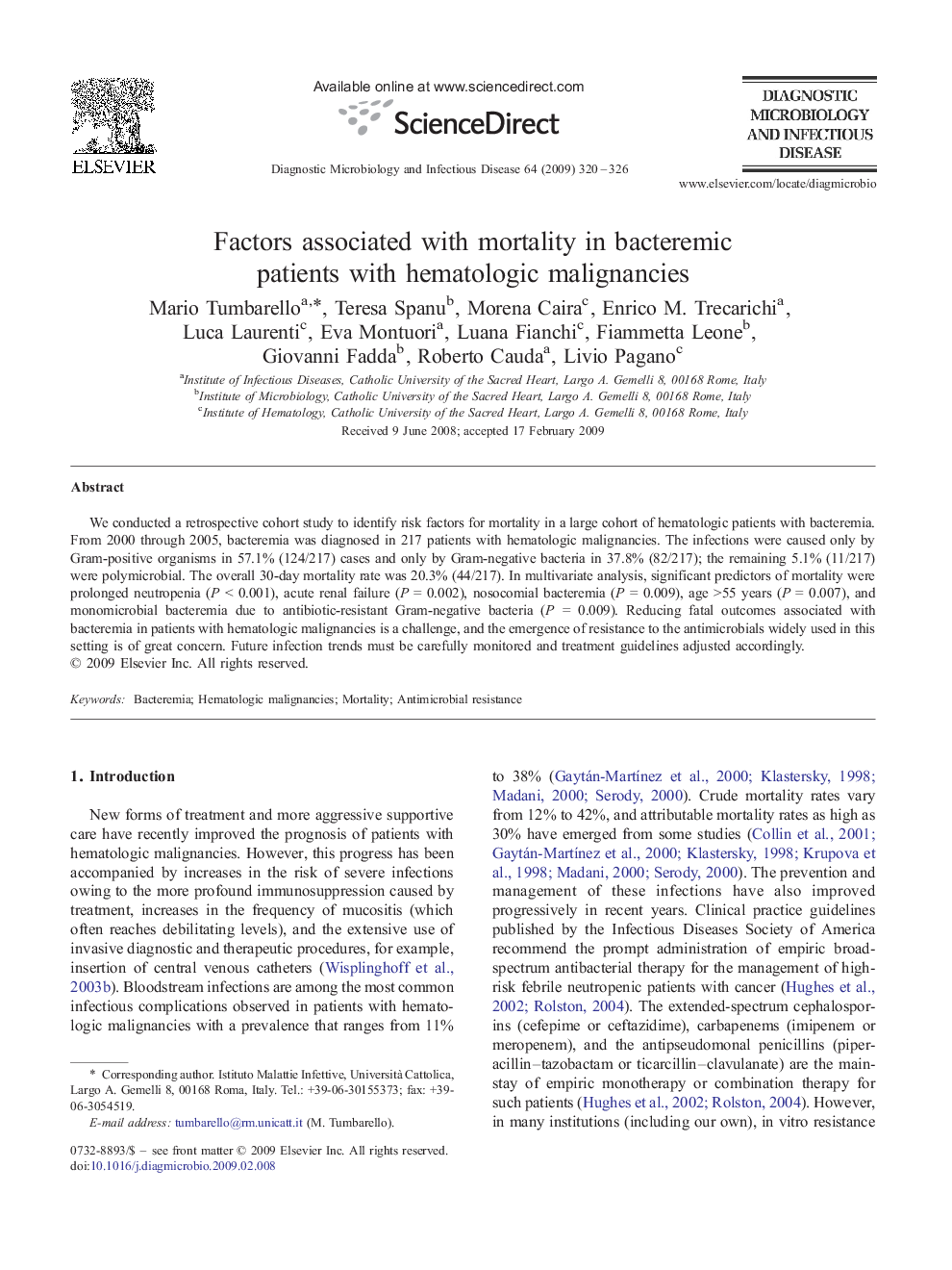| Article ID | Journal | Published Year | Pages | File Type |
|---|---|---|---|---|
| 3347900 | Diagnostic Microbiology and Infectious Disease | 2009 | 7 Pages |
We conducted a retrospective cohort study to identify risk factors for mortality in a large cohort of hematologic patients with bacteremia.From 2000 through 2005, bacteremia was diagnosed in 217 patients with hematologic malignancies. The infections were caused only by Gram-positive organisms in 57.1% (124/217) cases and only by Gram-negative bacteria in 37.8% (82/217); the remaining 5.1% (11/217) were polymicrobial. The overall 30-day mortality rate was 20.3% (44/217). In multivariate analysis, significant predictors of mortality were prolonged neutropenia (P < 0.001), acute renal failure (P = 0.002), nosocomial bacteremia (P = 0.009), age >55 years (P = 0.007), and monomicrobial bacteremia due to antibiotic-resistant Gram-negative bacteria (P = 0.009).Reducing fatal outcomes associated with bacteremia in patients with hematologic malignancies is a challenge, and the emergence of resistance to the antimicrobials widely used in this setting is of great concern. Future infection trends must be carefully monitored and treatment guidelines adjusted accordingly.
